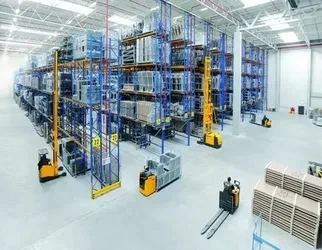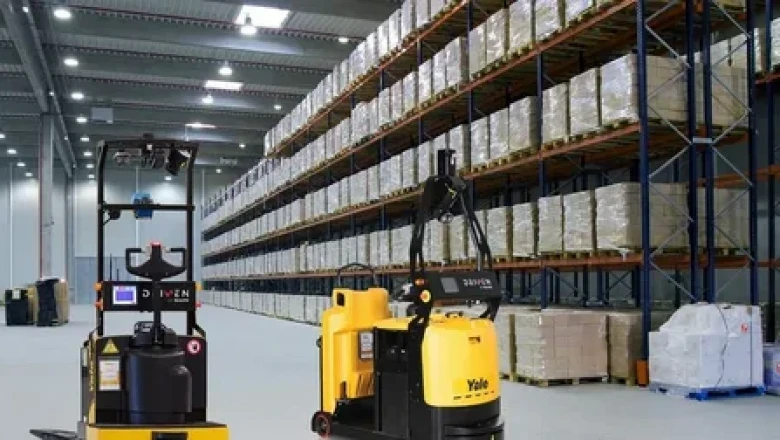views
The rise of warehouse automation has revolutionized supply chain management, enhancing efficiency, reducing costs, and increasing accuracy. As technology advances, more businesses are incorporating automated systems like robotics, AI-driven processes, and real-time tracking into their operations. While these developments offer significant benefits, the Warehouse Automation Market faces various challenges chief among them being security and data privacy concerns. As automation technologies become more integrated into supply chains, these concerns are growing in prominence, presenting hurdles for businesses seeking to adopt these systems.
The Complexity of Security in Automated Systems
The integration of automation systems into warehouses often means deploying advanced technologies that can process, store, and transmit vast amounts of data. Whether it’s robots on the warehouse floor or automated inventory management systems, these systems must communicate in real-time with central servers, cloud storage, and external partners. This increased connectivity introduces a range of security vulnerabilities, making it essential for businesses to implement robust cybersecurity measures.
Cybercriminals are continuously evolving their strategies to exploit weak points in these systems. A breach could mean the compromise of sensitive data, such as customer information, shipment tracking, and even intellectual property related to warehouse management systems. For example, a hacker gaining unauthorized access to a warehouse’s robotic operations could cause disruptions that impact the entire supply chain, from delayed shipments to compromised product safety.
Moreover, the complexity of automating warehouses often leads to increased interconnectivity between various software systems and third-party vendors. This interconnected ecosystem increases the risk of attacks, as vulnerabilities in one system could potentially be used to exploit others within the supply chain. For instance, if an automation provider fails to secure its servers or software, it could open the door to data breaches or even full-fledged cyberattacks.
Data Privacy Concerns in the Warehouse Automation Market
As warehouses become more automated, they also become more data-intensive. Automated systems collect real-time data on inventory, shipment movements, employee activities, and more. This data is often stored in centralized databases or the cloud, which introduces significant privacy concerns.
With stringent data privacy regulations such as the General Data Protection Regulation (GDPR) in the European Union and the California Consumer Privacy Act (CCPA), businesses must ensure that they handle personal data appropriately. However, many warehouse automation systems process large volumes of data without fully considering the implications for privacy. For example, data collected from automated surveillance cameras or employee monitoring systems could include personal information, such as facial recognition data or even employee activity logs.
Companies in the Warehouse Automation Market are increasingly faced with the challenge of ensuring compliance with these regulations. Failure to comply can result in hefty fines and damage to a company’s reputation. As automation becomes more widespread, the storage, processing, and sharing of sensitive data will only grow in complexity. For example, the use of third-party vendors for cloud storage or AI analysis might mean that data leaves the company's internal environment, raising concerns about unauthorized access or misuse.
Another significant concern is the lack of transparency regarding how data is collected, processed, and used by automated systems. If customers or employees feel that their personal information is being exploited or inadequately protected, it can lead to legal action, loss of trust, and potential boycotts. Transparency, consent, and control over personal data are critical aspects that must be addressed in any automated system design.
Addressing Security and Privacy Challenges
To address these security and data privacy concerns, businesses in the Warehouse Automation Market must adopt a comprehensive approach. First, strong encryption protocols should be implemented to protect data in transit and at rest. Encryption makes it more difficult for unauthorized parties to intercept or access sensitive information.
Regular system audits and penetration testing are also essential to identify vulnerabilities in automation systems. These measures allow companies to proactively address potential weaknesses before they can be exploited by malicious actors. Furthermore, businesses should invest in advanced threat detection and monitoring systems to detect and respond to security breaches quickly.
Data privacy can be mitigated by limiting the amount of personal data collected and ensuring that it is stored only for as long as necessary. Additionally, businesses should educate employees about privacy policies, data handling practices, and the importance of secure communication channels. By being transparent with customers and employees about data usage, companies can build trust and ensure compliance with privacy laws.
Collaboration between IT and legal teams is also critical. IT departments must ensure the technical infrastructure is secure, while legal teams can provide guidance on compliance with privacy regulations. The intersection of security and legal requirements should be at the forefront when designing and implementing warehouse automation systems.
Conclusion
The Warehouse Automation Market has the potential to streamline operations and improve efficiency across industries. However, businesses must be vigilant about the associated risks, especially concerning security and data privacy. The challenges posed by these concerns require businesses to take proactive steps to safeguard sensitive data and protect automated systems from cyber threats. By adopting robust cybersecurity measures, ensuring compliance with data privacy regulations, and fostering a culture of transparency and accountability, businesses can overcome these challenges and fully realize the benefits of automation.























Comments
0 comment